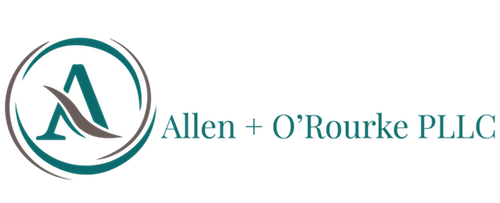So They Say They’re an Accountant? How to Find the Right Fit for Your Business
For many small businesses, there comes a time when the need for an accountant is just too strong to ignore. It might be during the startup phase when you find that your accounting knowledge only goes so far, or later down the line when rapid business growth begins to present new opportunities that call for professional financial guidance. Whether you decide to hire an accountant right from the start or a few months (or years) into the venture, it’s important to take the time to find the perfect fit for your business.
Accounting is Not One Size Fits All
If you’ve already started your accountant search, you have probably found a number of seemingly qualified candidates, all experienced in bookkeeping, tax preparations, financial reporting, and so on. However, even if someone looks great on paper, simply covering all the accounting bases might not cut it when it comes to the success of your business.
Of course, fundamental accounting skills like bookkeeping and reporting are important, but not every accountant that’s versed in these skills will necessarily be the right fit for your business. An average accountant might go through the motions, ensuring that all tasks are completed correctly and on time, but an effective accountant knows your business, helping you make better financial decisions and reach business goals more quickly.
Your Accountant Wish List
We’re all familiar with the idea of a wish list. If you’re buying a car, your wish list might include features like heated seats or a sunroof. If you’re hiring an accountant, you’ll also want to keep a checklist in mind of what qualifications you’re searching for in your perfect accountant. Here are three things to get you started.
1. They Are CPA Certified
In order to become a CPA, or certified public accountant, you must pass a certification exam and meet other academic and work experience requirements. CPAs and other certified accountants, such as chartered accountants (as some international counterparts to CPAs are known), are licensed professionals and typically have finance related degrees with several years of industry and/or public accounting experience.
The CPA designation is not easy to achieve, and maintaining a CPA licensure requires a strong familiarity with current laws and regulations. While non-licensed accountants may satisfy basic bookkeeping needs, CPAs are better qualified to advise on business finances, support in an IRS audit, and are bound by strict ethical standards, all of which are critical to your business’ financial health.
2. They Know Your Software
If your business has already established its accounting software of choice, it will be much less of a headache if your accountant is familiar with the software, rather than having to transition to a completely new accounting package. This checklist item might seem obvious, but overlooking the need for someone who is experienced using your business accounting software could result in losing valuable time.
3. They Understand Your Business
Remember, accounting isn’t one-size-fits-all, so that candidate you found with years of experience working with small agencies might not be the best fit for your rapidly growing ecommerce business, for example. An accountant who has worked with businesses of your size and industry in the past will be more familiar with industry tax codes and better able to advise on making business decisions in your sector.
Building a Connection Between Your Business and Your Accountant
Disconnect between accountants and their clients is a big issue for many businesses. Finding an experienced accountant that exhibits a good understanding of your business is a great start, but before you settle here, take the process a step further to connect your accountant’s experience with your business needs, discussing with any specific financial concerns you have or are hoping to resolve with their expertise.
These questions are great ways to gain a better understanding of your accountant’s experience and how they can help your business.
- Can you help me determine the financial health of my business?
- Can you help with projecting my business’ cash flow?
- How can you help me make more informed business decisions?
- Will you advise me on any financial or tax considerations applicable to my business?
Accounting goes so much deeper than payroll and taxes, which is why hiring an accountant for your business can become somewhat of a complex process. Don’t feel overwhelmed when the time comes to find the perfect fit for your business; with a little extra research and asking the right questions, you can find that all star accountant whose finance skills go above and beyond basic accounting needs and add unsurpassed value to your business.
